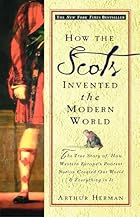91) 1177 B.C.: The Year Civilization Collapsed by Eric H. Cline
A more accurate title for this book would be ~1200-1150 B.C.: The Decades Civilization Collapsed in the Near East, but that's not half as eye-catching, so I don't blame the author for picking a specific, non-round-numbered year.
I was vaguely aware before reading this book that many of the great societies of the ancient world collapsed, or at least went into severe decline, a bit over a thousand years ago, and that a couple of centuries went by before you started to see the rise of Classical Greece, Persia, and the like. What I hadn't realized is how interconnected the empires of the Late Bronze Age, ~1500-1200 B.C., really were, nor how close to simultaneous their decline was.
Down through the years researchers have looked for a single cause for the collapse--famine caused by climate change, earthquakes, invaders, etc.--but Cline posits that it was a perfect storm of all those things plus a few other factors, and that the societies in question were sufficiently interconnected as trading and diplomatic partners, especially when it came to such key resources as bronze, tin, and even grain, that once one society collapsed, the others fell like dominoes.
If you're interested in ancient history, you'll enjoy this book. If not, it's probably a bit too dry to spark such an interest.
92) How the Scots Invented the Modern World by Arthur Herman
A history of the Scots of the 18th and 19th centuries, focusing heavily on the Scottish Enlightenment and its lasting contributions to to philosophy, economics, political science, medicine, architecture, and the like, but also ranging into such topics as the Scottish military tradition and its importance to the British army, along with the foundational role of Scots--Highland, Lowland, and Ulster/Scots-Irish alike--in America, Canada, and Australia. Definitely an interesting read, and while I would've said I knew a great deal about both Scotland and the British 18th and 19th centuries, it exposed some gaps in my knowledge of their intersection. Definitely a time and place I'd like to explore further.
93) The Shadow Hero by Gene Luen Yang & Sonny Liew
I borrowed this graphic novel from my daughter because I've enjoyed other Gene Luen Yang works. It's a superhero origin story with a twist--Yang and Liew took a short-lived comic from the 40's about a superhero called the Green Turtle whose Chinese-American creator supposedly wanted to portray as Asian and whose publishers supposedly wouldn't allow it. So we never quite saw the Green Turtle's face.
Fast forward 70 years or so, and Yang and Liew portray the Green Turtle as emphatically Asian--the son of Chinese immigrants growing up in an alterna-San Francisco--and have all kinds of fun with classic superhero origin tropes. It's playful without ever descending to parody, and I enjoyed it a lot.

No comments:
Post a Comment